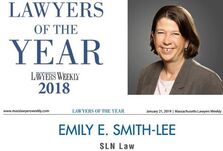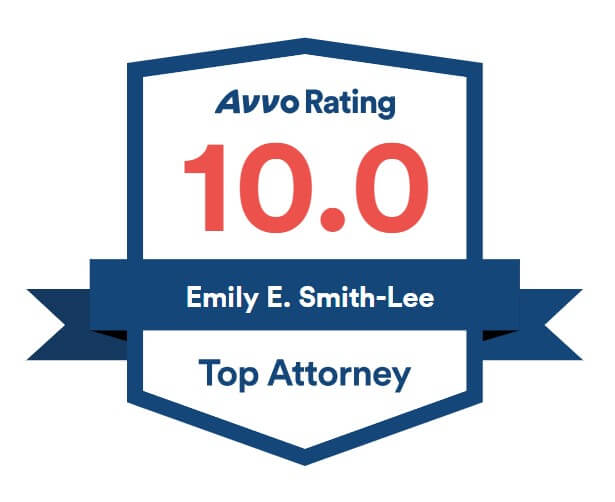Understanding Unfair Competition Laws in Massachusetts
Unfair Competition Laws in Massachusetts: What You Need to KnowCompetition in the business world is expected, even encouraged. However, there are boundaries that businesses must not cross. In Massachusetts, there exists a statute that explicitly prohibits unfair and deceptive business practices – M.G.L. Chapter 93. While this statute is often associated with consumer protection, it's important to note that it also applies to business-to-business interactions.
Unfair Competition: The Legal StandardM.G.L. Chapter 93A outlines the regulations for unfair business practices. It states:
"Unfair methods of competition and unfair or deceptive acts or practices in the conduct of any trade or commerce are hereby declared unlawful." When it comes to disputes between businesses, the threshold for proving unfair competition is slightly higher. While businesses are encouraged to compete with one another, demonstrating a higher level of unfairness is crucial to making a Chapter 93A claim. Simple breaches of contracts or hiring key employees from competitors typically do not constitute unfair competition under the law. Unfair Competition: Location RequirementsTo file a claim under Chapter 93A, you must demonstrate that the unfair conduct primarily and substantially occurred in Massachusetts. This does not necessarily mean that all parties involved need to be Massachusetts-based. If your Massachusetts business suffers damages as a result of actions taken by an out-of-state business, you can likely meet this requirement.
Conversely, claims related to transactions that only minimally involve Massachusetts may not fall under Chapter 93A. However, similar state statutes in the state where the conduct took place may still be relevant in a Massachusetts lawsuit. Unfair Competition: The Demand LetterUnlike consumer claims, business-to-business disputes under Chapter 93A do not require a demand letter. However, there are compelling reasons to consider sending one before resorting to litigation. Not only could this help resolve the issue, but it also demonstrates your genuine efforts to reach a settlement before incurring legal fees.
Unfair Competition: Excluded RelationshipsSome business relationships are specifically excluded from the scope of the unfair competition statute. The employer-employee relationship, for instance, is generally considered an internal matter rather than a marketplace issue under Chapter 93A. Nevertheless, a 2021 Massachusetts Supreme Judicial Court decision extended Chapter 93A to instances where an employee misappropriates confidential information and uses it to compete with their former employer.
Similarly, relationships between business partners or shareholders in closely held corporations are typically considered internal. Claims related to wrongful exclusion, breach of fiduciary duty, profit distribution, or business management issues are usually not governed by Chapter 93A. However, if a partner breaches their fiduciary duty and uses the benefits of that breach for competition, Chapter 93A may come into play. Unfair Competition: The ConsequencesSucceeding in an unfair competition claim against another business can lead to significant outcomes. The court has the authority to award damages up to three times the amount you've suffered, as well as require the opposing party to cover your legal fees. This stands in contrast to standard contract or tort actions, where you are typically entitled to only actual damages, and each party bears their own legal costs, regardless of the verdict.
|
We're Here to Help.OR
|
Questions About Unfair Competition?
Our Solutions Roadmap is a quick and easy way to share the details of what you are facing and receive preliminary feedback from a member of our team. Use the button below to get started- it is 100% confidential and 100% free.
Meet Our Business Attorneys

Emily Smith-Lee is the owner and founder of slnlaw. She is a 1996 graduate of Boston College Law School. She was previously a partner at the Boston office of a large international firm, where she worked for thirteen years with a focus on business litigation. In 2009, she started the firm that since became slnlaw, and has grown it from a solo practice to a five-attorney firm with multiple practice areas. She has been recognized as Massachusetts Superlawyer each year since 2013, and in 2018 earned recognition as one of Massachusetts Lawyers Weekly's Lawyers of the Year. She has written a book on employment law: Rules of the Road, What You Need to Know About Employment Laws in Massachusetts, and helped hundreds of small business owners with contracts, business transactions, employment law advice, business incorporation, and risk management. She has also litigated business disputes in state and federal courts.

Rebecca Rogers: Rebecca is a 2006 graduate of Boston College Law School, and has worked with slnlaw since 2013. She previously worked as an intellectual property litigation attorney for Fish & Richardson in Boston, Massachusetts, and clerked for the Massachusetts Supreme Judicial Court. Rebecca has helped clients with business contracts, employment contracts, and employment law advice.

Jenna Ordway: Jenna is a 2013 graduate of Quinnipiac Law School, and also earned an LLM in Taxation from Boston University in 2015. She has been affiliated with slnlaw since 2011, first as a law clerk and then as an attorney. Jenna has been recognized since 2019 as a "Rising Star" by Massachusetts Superlawyers. Jenna has helped many small business owners with simple and complex business incorporation, contract review, advice and analysis regarding business disputes, employment law advice, and advice about business succession considerations as part of estate planning.

Elijah Bresley: Eli is a 2014 graduate of Seton Hall Law school, and has worked with slnlaw since 2020. He previously worked for a boutique employment law firm outside of Boston, and then for the Labor and Employment department of a large Boston firm. He also spent a year clerking for the judges of the Superior Court in Hartford, Connecticut. Eli has helped our small business clients with employment law advice and defense of employment-related lawsuits in MCAD and state and federal courts.

Sharleen Tinnin: Sharleen is a 2010 graduate of Northeastern University School of Law, and has been with slnlaw since 2023. Prior to joining slnlaw, she worked with King, Tilden, McEttrick & Brink, P.C. on complex civil litigation matters. She previously worked for the United States Department of Justice, and received an "Excellence in Justice" award in 2017. Sharleen has helped clients litigate business disputes in state and federal courts, and advised business owners about succession considerations as part of their estate planning.
How We Can Help
Our experienced legal team is here to provide expert guidance and support in navigating the complexities of Massachusetts unfair competition laws, ensuring your rights are protected and your interests are safeguarded throughout the legal process. You can use the button below to schedule a call back from a member of our team, or give us a call at 781-784-2322.
|
Emily Smith-Lee Rated by Super Lawyers loading ... |
Jenna Ordway
Rated by Super Lawyers loading ... |


